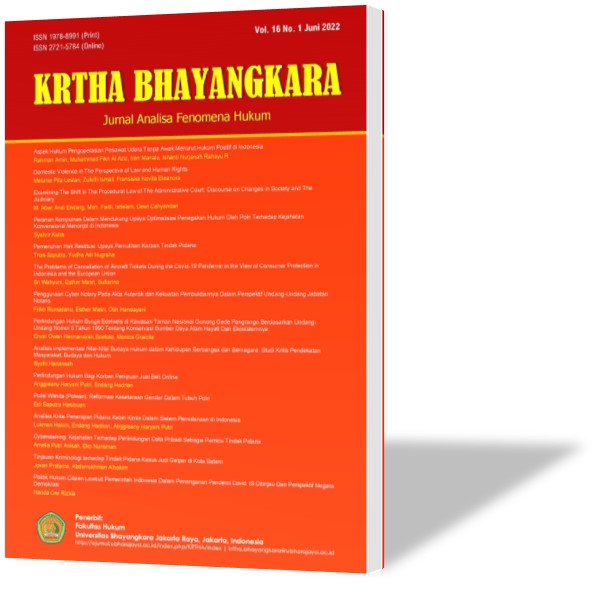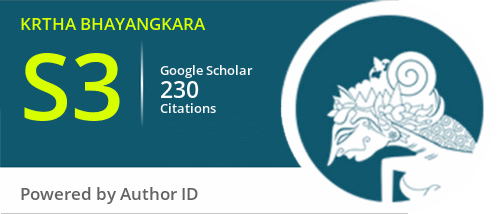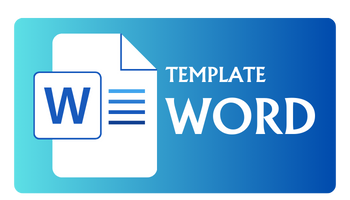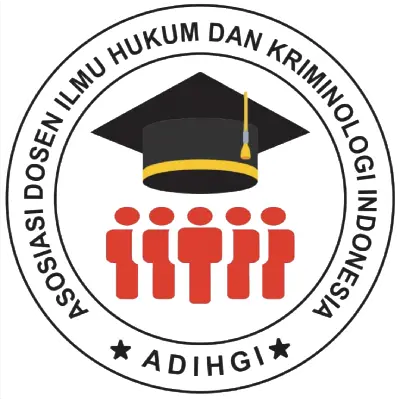Pengawasan Pengelolaan Tanah Wakaf Dalam Kewenangan KUA Kecamatan Nanggung Kabupaten Bogor dalam Pendekatan Konsep Kesejahteraan Sosial
DOI:
https://doi.org/10.31599/krtha.v17i3.794Abstract
Endowment management has special principles, namely the principles of sustainability and eternity. This principle of eternity can be manifested in the form of optimizing the performance of nazhir (endowment organiser) and the District Office of Religious Affairs (KUA) which functions as manager, supervisor and recorder of the orderly administration of endowment in Indonesia. Due to the wide and large distribution of endowment land throughout Indonesia, the government, in this case the Indonesian Ministry of Religion, appointed the role and function of KUA elements as executors and supervisors of endowment. The style and allocation of waqf in each sub-district is different. This article analyzes the role and authority of the KUA of Nanggung District, Bogor Regency in carrying out its functions. In particular, the allocation of endowment in Nanggung District is still limited to '3M' endowment, namely masjid-musala, madrasa, and burial ground. This research uses a empirical juridical approach which is descriptive analytical and explanatory. This research provides an overview and analysis of endowment organiser and supervision practices by nazhir and by the KUA institution by linking this implementation to applicable laws and regulations. The results of this research show that the role and function of the Nanggung District KUA has been implemented optimally. The role of guidance and supervision runs optimally as seen in the endowment land which is registered and monitored from the aspect of ownership, handover of the endowment to the aspect of the performance of the nazhir as the endowment organiser.
References
Ali, Mohammad Daud. Sistem Ekonomi Islam Zakat Dan Wakaf. Jakarta: UI Press, 1988.
Asshiddiqie, Jimly. Konstitusi & Konstitusionalisme Indonesia. Jakarta: Mahkamah Konstitusi RI dan Pusat Studi Hukum Tata Negara Fakultas Hukum Universitas Indonesia, 2004.
———. Konstitusi Keadilan Sosial: Serial Gagasan Konstitusi Sosial Negara Kesejahteraan Sosial Indonesia. Jakarta: Kompas, 2018.
Departemen Agama Republik Indonesia. “Paradigma Baru Wakaf Di Indonesia.” Bimbingan Masyarakat Islam Direktorat Pemberdayaan Wakaf, 2008, 138.
KUA Kecamatan Nanggung, Kabupaten Bogor. “Laporan Tahunan Tanah Wakaf.” Bogor, 2022.
Rifatunnisa, Utami. “Perlindungan Hukum Tanah Wakaf Atas Peralihan Kepada Pihak Ketiga Yang Melanggar Hukum Menurut Hukum Islam Dan Dikaitkan Dengan Undang Undang Nomor 41 Tahun 2004 Tentang Wakaf.” Al Awqaf: Jurnal Wakaf Dan Ekonomi Islam 11, no. 2 (2018): 179.
Usman, Rachmadi. Hukum Perwakafan Di Indonesia. Jakarta: Sinar Grafika, 2009.
Yumarni, Ani. Kapita Selekta Hukum Islam: Seri Hukum Zakat Dan Wakaf. Bogor: Unida Press, 2019.
———. “Profesionalitas Nazhir Perseorangan Sebagai Perwujudan Konsep Amanah (Trust) Dalam Perwakafan Tanah Di Indonesia.” Universitas Indonesia, 2022.
Yumarni, Ani, Gemala Dewi, Jaih Mubarok, Wirdyaningsih, and Anna Sardiana. “The Implementation of Waqf as ‘Urf in Indonesia.” Sriwijaya Law Review 5, no. 2 (2021): 287–99. https://doi.org/10.28946/slrev.Vol5.Iss2.1126.pp287-299.
Yumarni, Ani, Mulyadi Mulyadi, And Siti Maryam. “Legal Study on Ruislagh of Waqf Land Which is Affected By The Development of Public Facilities on The Maqashid Sharia Perspective.” Maqdis: Jurnal Kajian Ekonomi Islam 7, no. 1 (April 18, 2023): 1. https://doi.org/10.15548/maqdis.v7i1.237.
Zainal, Veithzal Rizal. “Pengelolaan Pengembangan Wakaf Produktif.” Al Awqaf: Jurnal Wakaf Dan Ekonomi Islam 9, no. 9 (n.d.).
Peraturan Perundang-Undangan
Undang-Undang Dasar Negara RI 1945;
Undang-Undang Nomor 41 Tahun 2004 tentang Wakaf;
Peraturan Pemerintah Nomor 42 Tahun 2006 tentang Pelaksanaan Undang-Undang Wakaf;
Instruksi Presiden Nomor 1 Tahun 1991 tentang penyebarluasan Kompilasi Hukum Islam;
Peraturan Menteri Agama Nomor 73 Tahun 2013 tentang Tata Cara Perwakafan Benda Tidak Bergerak dan Benda Bergerak Selain Uang;
Peraturan Badan Wakaf Indonesia Nomor 1 Tahun 2008 tentang Prosedur Penyusunan Rekomendasi terhadap Permohonan Penukaran/ Perubahan Status Harta Benda Wakaf;
Peraturan Badan Wakaf Indonesia Nomor 3 Tahun 2008 tentang Tata Cara Pendaftaran dan Penggantian Nazhir Harta Benda Wakaf Tidak Bergerak Berupa Tanah.
Downloads
Published
Issue
Section
License
Copyright (c) 2024 Ani Yumarni, Ani Nuraeni, Hidayat Rumatiga

This work is licensed under a Creative Commons Attribution 4.0 International License.



































